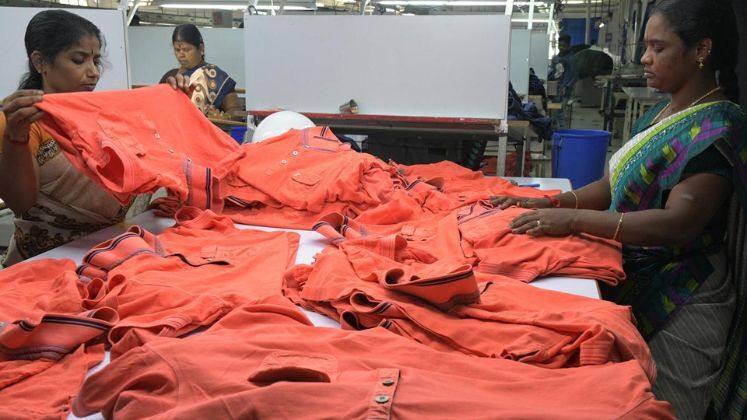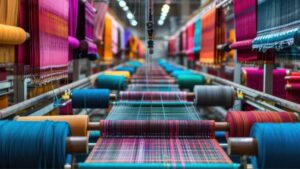
Tamil Nadu’s Tirupur and Coimbatore regions’ garment exports jumped to Rs. 45,000 crore (US $ 5.39 billion) during the 2024–25 financial year, as per figures released by the Tirupur Exporters’ Association (TEA). The figure shows a 20% hike compared to last year, highlighting the region’s intensifying prominence in the apparel export business in India.
Speaking to The Hindu, TEA President K.M. Subramanian revealed that Tirupur alone contributed nearly Rs. 40,000 crore (US $ 4.79 billion) to the total, with Coimbatore adding another Rs. 5,000 crore (US $ 598.8 million). Subramanian said that they’re optimistic about maintaining this upward trajectory, projecting a further 15% growth in the current fiscal year, potentially taking the combined export value to around Rs. 46,000 crore (US $ 5.51 billion).
Beside these direct exports, the sector is also enhanced by merchant or indirect exports that, although not specifically measured, are approximated adding another Rs. 5,000 crore (US $ 598.8 million) to the total.
Yet, the upsurge in demand is putting strain on available infrastructure. Export units are running close to 90% of their installed capacity and there is a pressing need for investment in expansion of capacity and modernisation. Subramanian emphasised that the sector’s technological upgradation needs to be aided by the government, particularly in the face of continuous labour shortages. He added that technology has moved very fast in the last five years. Automation is now unavoidable, but the industry requires policy support to finance such transitions.
As much as the export chain is robust, industry observers pointed to domestic-focused MSMEs facing challenges. An inflow of low-cost imported man-made fibre (MMF) fabric—sold at almost half the cost of domestic production—has severely impacted the unorganised knitting sector in Tirupur, prompting many small players to look towards import from overseas over local mills.
With all these headwinds, Tirupur and Coimbatore remain the pillars of India’s knitted garment exports, representing an estimated 68% of India’s total exports. With the free trade agreements it has with the UK and talks in progress with the US and European Union, the industry leaders are confident that these southern textile clusters have even more growth to come on the world stage.






